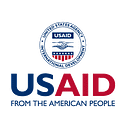Keeping schools on track in Zambia during the COVID-19 pandemic
Overcoming challenges in the transition to remote learning
COVID-19 forced many schools in Zambia to close for extended periods, hitting students at low-cost private schools especially hard. These schools serve many learners from poor and vulnerable households in urban areas but are excluded from government crisis response plans. In some cases, regulations limit their access to external financing. Therefore, the transition to remote learning during the pandemic was exceedingly challenging for these schools, complicated by the prohibitive cost of information technology for families, limited access to reliable electricity, mobile networks, and the internet, and educators having to design effective remote learning programs.
CATALYZE’s EduFinance crisis response toolkit
CATALYZE’s EduFinance supported the use of a crisis response toolkit provided to affected schools in Zambia with several innovative methods to mitigate challenges and enabling students to keep learning while allowing schools to stay open, even when in-person learning was impossible.
Radio lessons
Radio lessons were one of EduFinance’s most successful remote education methods, allowing teachers to quickly adapt lessons to be delivered by radio.
“CATALYZE Edufinance partner Promoting Equality in African Schools (PEAS) gave teachers an opportunity to develop and present lesson scripts, which was an extremely exciting, whole new experience of lesson planning,” said Ms. Namwinga, a teacher at PEAS Kampinda Secondary School. “It was overwhelming to see how students were following, asking and responding to questions at the end of the show. We received calls from students around the province and were inspired to do even better when we learned that parents were also listening and encouraging their children to phone in.”
Students also reported being engaged by radio lessons.
“I could not wait to hear my teachers on the radio, and I remember I did not want to leave the house when I knew a lesson was being broadcast,” said Thandi, a student at PEAS Kabuta Secondary School. “I found the lessons to be extremely helpful because they helped me to focus on my schoolwork and learn something new in every subject–even when the schools were closed for six months. When school was closed, I went to stay with my grandparents in a village with no power or TV, but we had a radio, so I was able to keep studying. I would like it if the radio programs could continue every holiday.”
Remedial work and study kits were provided to help students catch up, especially for exam preparation classes. Students also formed learning clusters to help one another with remote learning over the weekend and holidays, with a teacher assigned to support each cluster.
98 percent of students participated in at least one form of remote learning
Catalyze EduFinance surveys conducted in August 2021 after schools had been closed since June showed that 98 percent of students had participated in at least one form of remote learning. Seventy-five percent had used specially prepared learning packs and 65 percent had done so using the telephone.
In the first week of reopening, with CATALYZE Edufinance resources, PEAS schools continued remote learning and emphasized the importance of returning to school with radio announcements, school leader visits to local churches, and phone calls from teachers, school leaders, parents, and guardians.
To mitigate barriers faced by the poorest families, PEAS schools in Zambia used CATALYZE Edufinance resources to create payment plans to help caregivers struggling to pay for their daughters’ boarding fees.
CATALYZE EduFinance also converted its school leadership professional development courses into an online self-study course. Additional content was developed to increase parental involvement in learning, as well as for partnerships with local content providers. School leaders were supplied with tablets and data plans in case of further school closures.
EduFinance also developed training to support staff in understanding the psychological impact of COVID-19 and to equip students with techniques to cope with the crisis. Topics ranged from mindfulness to how to support friends and family and looking after one’s own mental health.
